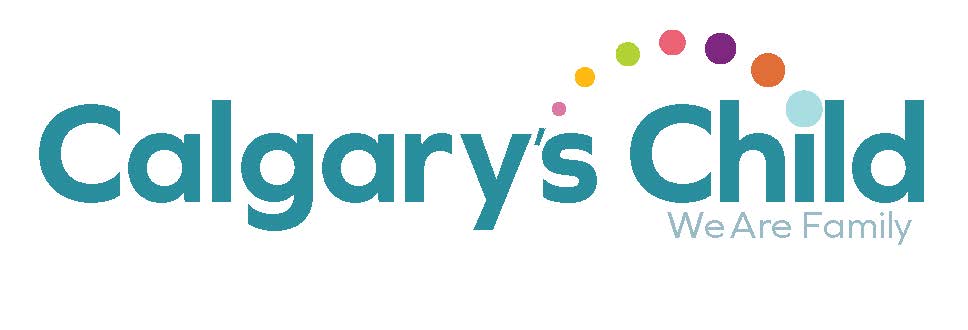
Five Things You Must Teach Your Parents to Be Safe Online
On November 6, 2019 by Calgary's ChildProvided by NordVPN
Seniors use the internet for the same reasons as everyone else — talking with friends and family, shopping, watching videos, and reading the news. However, the elderly are often targeted by scammers, who see them as wealthy and vulnerable.
“Although a lot of seniors are embracing smart and social technology, they need to be reminded about its dangers. Online scammers can take advantage of older people’s trusting nature — therefore, we all need to teach our elderly relatives about cybersecurity to protect them” says Daniel Markuson, the digital privacy expert at NordVPN.“
Scams try to exploit weakness, so the digital privacy expert identified the five most common mistakes made by inexperienced internet users. He also listed some useful tips to protect yourself:
1. Using weak passwords. When signing up to a new account, your first priority is to set a strong, complex, and — above all — unique password. Tell your parents and grandparents to use a password manager, like NordPass, instead of writing their passwords down in notebooks or text files. For best security, remind them to use different passwords for each account changing them every once in a while to avert possible data breaches.
2. Sharing personal information. Avoid putting your email, phone number, home address, or vacation plans on blogs, forums, and social networks like Facebook, Instagram, or Twitter. Explain to your relatives that they should never reveal their social security number online, as identity thieves can wreak havoc with that kind of information.
Daniel Markuson from NordVPN also advises to keep a cool head online — your parents shouldn’t share feelings or participate in heated discussions. Cybercriminals are looking for emotionally vulnerable people who they can exploit using psychological techniques.
3. Falling for online shopping scams. According to the US Department of Justice, seniors lose over $3 billion each year to financial scams. New or trusting internet users are rich pickings for fraudsters. Think 90% discounts, $10 Ray Bans, or even cheap diamond jewelry. Seniors in particular often fall for magical (yet unproven) treatments that promise to cure their health issues.
Teach your elderly relatives this simple rule: if it sounds too good to be true, it most definitely is. Some websites will send fake items instead of what was advertised, some will simply take your money and run. And in either case, scammers now have their hands on the victim’s credit card details.
So how do you identify a fake e-shop? Daniel Markuson advises to look for the tell-tale signs: poor website design, broken English, suspicious domain names (e.g. famous brand names with extra words like ‘deal’ or ‘sale’ thrown in, such as “michaelkorsdiscounts.net”), shady contact information, unclear returns policies, poor customer reviews, and so on.
4. Clicking on phishing links. Fraudulent emails hide malware and viruses to infect your computer. Even if your parents already know about email scams, it doesn’t hurt to remind them again. Don’t open phishing emails, download suspicious attachments, or click on scammy links: hackers use them to inject tracking programs and potentially even hijack your device. According to NordVPN’s digital privacy expert, you should always verify the email’s sender and contents before clicking anything inside.
5. Believing fake news. The internet is full of seemingly reputable websites that aim to influence readers through fake news. Misleading news about politics or finances may cause panic and cloud judgment. This is especially true for children and the elderly, who tend to be more trusting and thus more easily influenced.
Inform your older relatives about the damage that fake news can do and teach them how to spot the warning signs. Checking the source (what’s the website’s mission and contact info?), author (are they credible?), and date (reposting old news doesn’t make them relevant to currents events) of the news can go a long way towards spotting someone with an agenda. If in doubt, refer to an expert or a fact-checking website.
ABOUT NORDVPN
NordVPN is the world’s most advanced VPN service provider, used by over 12 million internet users worldwide. NordVPN offers double VPN encryption, malware blocking, and Onion Over VPN. The product is very user-friendly, offers one of the best prices on the market, has over 5,000 servers in 60 countries worldwide, and is P2P friendly. One of the key features of NordVPN is zero log policy. For more information: nordvpn.com.
Recent Posts
Recent Posts

Spring Edition Contests
eat2explore eat2explore is an award-winning, educational food and culture ‘explorer box’ that inspires families to cook, taste, and discover different world cuisines and cultures. eat2explore’s cooking boxes bring the food of different countries straight to …View all...
Archives
- April 2024
- March 2024
- February 2024
- January 2024
- December 2023
- November 2023
- October 2023
- September 2023
- August 2023
- July 2023
- June 2023
- May 2023
- April 2023
- March 2023
- February 2023
- January 2023
- December 2022
- November 2022
- October 2022
- September 2022
- August 2022
- July 2022
- June 2022
- May 2022
- April 2022
- March 2022
- February 2022
- January 2022
- November 2021
- October 2021
- August 2021
- July 2021
- June 2021
- April 2021
- March 2021
- February 2021
- January 2021
- December 2020
- November 2020
- October 2020
- September 2020
- August 2020
- July 2020
- June 2020
- May 2020
- April 2020
- March 2020
- February 2020
- January 2020
- December 2019
- November 2019
- October 2019
- September 2019
- August 2019
- July 2019
- June 2019
- May 2019
- April 2019
- March 2019
- January 2019
- December 2018
- November 2018
- September 2018
- August 2018
- July 2018
- March 2018
- February 2018
- December 2017
- November 2017
- September 2017
- August 2017
- July 2017
- June 2017
- May 2017
- March 2017
- February 2017
